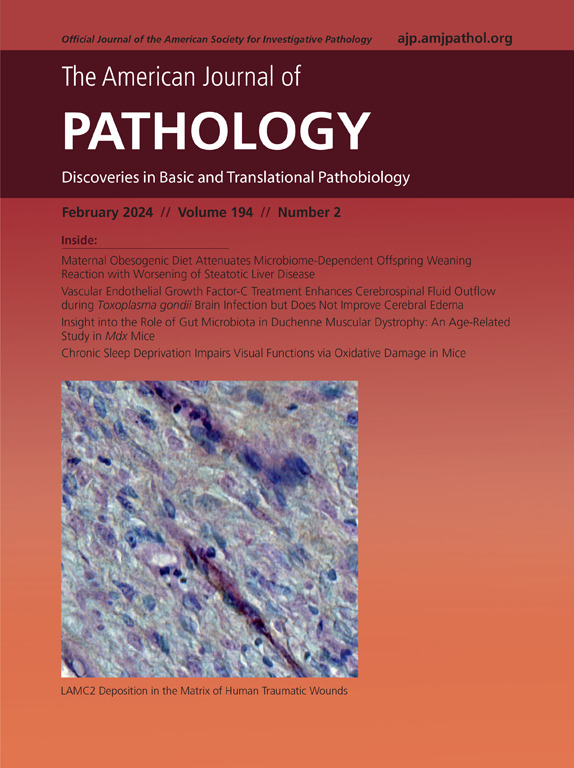Hepatic Nuclear Receptors in Cholestasis-to-Cholangiocarcinoma Pathology
IF 4.7
2区 医学
Q1 PATHOLOGY
引用次数: 0
Abstract
Cholestasis, characterized by impaired bile flow, is associated with an increased risk of cholangiocarcinoma (CCA), a malignancy originating from the biliary epithelium and hepatocytes. Hepatic nuclear receptors (NRs) are pivotal in regulating bile acid and metabolic homeostasis, and their dysregulation is implicated in cholestatic liver diseases and the progression of liver cancer. This review elucidates the role of various hepatic NRs in the pathogenesis of cholestasis-to-CCA progression. It explores their impact on bile acid metabolism as well as their interactions with other signaling pathways implicated in CCA development. Additionally, it introduces available murine models of cholestasis/primary sclerosing cholangitis leading to CCA and discusses the clinical potential of targeting hepatic NRs as a promising approach for the prevention and treatment of cholestatic liver diseases and CCA. Understanding the complex interplay between hepatic NRs and cholestasis-to-CCA pathology holds promise for the development of novel preventive and therapeutic strategies for this devastating disease.
胆汁淤积到胆管癌病理学中的肝核受体
胆汁淤积症的特点是胆汁流动受阻,它与胆管癌(CCA)风险增加有关,胆管癌是一种源自胆道上皮和肝细胞的恶性肿瘤。肝脏核受体(NRs)在调节胆汁酸和代谢平衡中起着关键作用,它们的失调与胆汁淤积性肝病和肝癌的进展有关。本综述阐明了各种肝脏 NRs 在胆汁淤积性肝癌进展的发病机制中的作用。我们探讨了它们对胆汁酸代谢的影响,以及它们与其他涉及 CCA 发展的信号通路之间的相互作用。此外,我们还介绍了现有的胆汁淤积症/原发性硬化性胆管炎(PSC)导致 CCA 的小鼠模型,并讨论了靶向肝 NRs 作为预防和治疗胆汁淤积性肝病和 CCA 的一种有前景的方法的临床潜力。了解肝NRs与胆汁淤积性肝病到CCA病理之间复杂的相互作用,有望为这一毁灭性疾病开发出新的预防和治疗策略。
本文章由计算机程序翻译,如有差异,请以英文原文为准。
求助全文
约1分钟内获得全文
求助全文
来源期刊
CiteScore
11.40
自引率
0.00%
发文量
178
审稿时长
30 days
期刊介绍:
The American Journal of Pathology, official journal of the American Society for Investigative Pathology, published by Elsevier, Inc., seeks high-quality original research reports, reviews, and commentaries related to the molecular and cellular basis of disease. The editors will consider basic, translational, and clinical investigations that directly address mechanisms of pathogenesis or provide a foundation for future mechanistic inquiries. Examples of such foundational investigations include data mining, identification of biomarkers, molecular pathology, and discovery research. Foundational studies that incorporate deep learning and artificial intelligence are also welcome. High priority is given to studies of human disease and relevant experimental models using molecular, cellular, and organismal approaches.

 求助内容:
求助内容: 应助结果提醒方式:
应助结果提醒方式:


